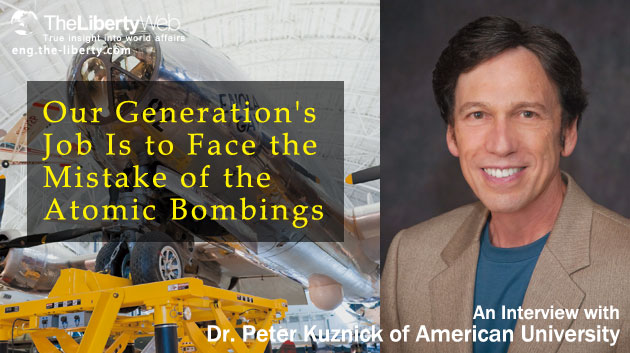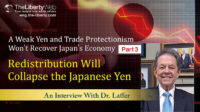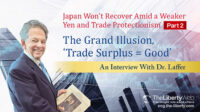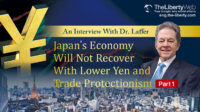An Interview with Dr. Peter Kuznick of American University
Our Generation's Job Is to Face the Mistake of the Atomic Bombings
Q: How do people think about the droppings of the atomic bombs in general in the United States?
A: Attitudes in the United States have evolved somewhat over the years. Initially after the bomb was dropped, 85% percent of the public said that they approved of the atomic bombing. A little bit later in 1945, Roper released a poll showing that 22.7% of Americans wished the Japanese had not surrendered so quickly so that we would have had time to drop more atomic bombs on them. So, the initial reaction was overwhelmingly favorable toward the dropping of the atomic bomb. The Southwestern United States, 30% said that they wished we could drop more atomic bombs on the Japanese. The hatred toward the Japanese was palpable, certainly in 1945.
That begins to change a little bit in 1946 with the publication of John Hersey’s Hiroshima in New Yorker Magazine in August of 1946. And that for the first time humanizes the Japanese victims and many Americans began to have second thoughts at that point. It’s in response to that, and to the shifting attitudes that the U.S. government, that American officials, decide they’d better put out another narrative.
And so, wartime science administrator James Conant urges Secretary of War Henry Stimson to write a somewhat official response to counter the growing anti-bomb sentiment in 1946. And Stimson publishes that in Harper’s in early 1947. And that becomes the official narrative. And for a long time, the American public believed and was told over and over again that the atomic bombs were necessary in order to avoid an invasion.
The number of causalities to be expected from an invasion grew over the years. Initially, Truman said the bombings saved thousands of American lives. He later says a quarter of a million. In his memoir in 1955, he says that General Marshall told him that a half a million men would have been lost in an invasion. The number keeps going up. George H. W. Bush later said that it saved millions of American lives. And so that becomes the official narrative, the triumphal narrative.
In recent years, I’ve seen surveys, public opinion polls that show that that the opinion is pretty split at this point. Younger Americans think that the atomic bomb was wrong and unnecessary, older Americans tend to support the atomic bomb. The WW2 generation tends to be overwhelmingly in favor of the atomic bombings. Some polls still show maybe 60 to 40 in favor, but other polls show that it’s a closer divide now on the bomb with younger people and women being more generally opposed and men, especially white men, being more supportive.
Q: America had dropped atomic bombs in Hiroshima and Nagasaki in 1945, and conducted Tokyo air raids on civilians. At the time, there was no possibility for Japan to win the war. Why do you think these atrocities on civilians were conducted?
A: The American strategy for winning the war was initially 3-fold: it involved the blockade of Japan, it involved the bombing of Japanese cities, and it involved an invasion of Japan. Once the United States had developed the atomic bomb, the invasion was in reality off the table, although there was still some discussion of it.
But intrinsic to America’s war plans was the bombing of Japanese cities. The United States firebombed actually over 100 Japanese cities during the war. The figure that’s given is usually 64, but Japanese researcher Yuki Tanaka has shown that more than 100 Japanese cities were actually firebombed.
The firebombing was horrific. Destruction reached 99.5% of the city of Toyama, 99.5%. It got so bad that Secretary of War Henry Stimson said to President Truman , “I don’t want the United States to get the reputation for outdoing Hitler in atrocities.” Another American military leaders, Brigadier General Bonner Fellers, said that this was “one of the most ruthless and barbaric killings of non-combatants in all history.” . So this is going on on a vast scale.
Initially in Europe, the United States avoided bombing civilians, but by 1943 that had changed whereas that was British policy from early on. Americans went after strategic points in the German economy, but by 1943 the Americans were participating in some of the bombing raids against urban bombing targets, civilian bombing.
But in Japan, that was going on on a much more grandiose scale. When Major General Haywood Hansell, the head of the 21t Bomber Command in Japan resisted, hesitated to change policy to bomb cities, he was replaced by General Curtis LeMay, and LeMay seemed to have no hesitation about bombing Japanese cities.
So, the bombing of cities begins with the firebombing of Tokyo, and then it goes on for the next few months, and cities are going to be destroyed, totally destroyed. But that by the end three-quarters of America’s payloads in the bombers were incendiary bombs deliberately designed to burn down the cities. The goal was to create firestorms where we could do it, and we succeeded several times. So that’s what happened.
Why did it happen? That was the strategy, LeMay’s strategy, which Americans went along with, was you’ve got to kill people. The more you kill, the more they’re likely to quit. So, the idea was we have that everybody in Japan was a legitimate target. That there were no civilians in Japan. And that we had to kill as many as we could in order to end the war. And that was the way to limit American casualties and to maximize Japanese fatalities.
Q: What’s your take on the opinion that there was a significant aspect of it being an experiment for two types of nuclear bombs, uranium and the plutonium?
A: Well, clearly there were those who wanted to use both bombs. Everybody was certain, or just about everybody was certain, that the uranium bomb was going to work, which was the shotgun method, which was more straightforward, and that’s why we didn’t bother testing that.
The bomb we tested in Alamogordo on July 16th, 1945 was the plutonium bomb, and that uses a more difficult implosion method, and that was important because there was more plutonium available, so making additional bombs would be easier to do with plutonium When they tested it in Alamogordo, many were stunned. They were amazed by how powerful and successful that bomb test was. So, you could say that, and I think it’s probably sadly true, if we had a thorium bomb also, we probably would have taken out 3 cities.
So there was that sense in which it was an experiment. I sometimes in that regard quote Brigadier General Carter Clarke who was in charge of preparing the MAGIC intelligence summaries in 1945, and he said a little bit later, he said, “We brought them down to an abject surrender… and when we didn’t need to do it, and we knew we didn’t need to do it, and they knew we didn’t need to do it, we used them as an experiment for 2 atomic bombs.”
Clearly the United States wanted to use the bombs during the war. There was no military necessity and certainly no moral justification.
Q: Professor Shillony at Hebrew University answered in our interview the following:
“Japan was engaged in peace negotiations with Soviet mediators. If Japan had accepted the Potsdam Declaration, then the bombs would not have been dropped, perhaps. However, the reasons, why Japan did not accept it, were that America did not promise to maintain the Emperor system, it did not mention the use of the nuclear bomb, and the Soviet mediators, which the Japanese believed would help, didn’t deliver on their promises as expected. It was unethical and militarily unnecessary to drop the atomic bombs. And at that time, the Soviets had not started to war with Japan, and had not moved south, so that, if America had properly stated the terms and its situation, and had quickly ended the war, perhaps China and North Korea would not have turned Communist. It could only be said that it was a failure on the part of America’s leadership.”
Do you have any opinion on this remarks?
A: I agree with a lot of that statement. I think it was a failure on the part of America’s leadership.
There was a lot of pressure on Truman to change his surrender terms. It was at Casablanca that Roosevelt and Churchill basically agreed on, the demand of unconditional surrender.
Almost all of Truman’s close advisors told him that if they wanted to expedite Japanese surrender, they would have to change the surrender terms minimally to let the Japanese know that they can keep the Emperor system, keep the Emperor. As Douglas MacArthur’s Southwest Pacific Command said in a report, an intelligence report in November of 1945, “Hanging of the Emperor to them would be comparable to the crucifixation of Christ to us. All would fight to die like ants.”
The leading expert on Japan in the top circles was Joseph Grew, who was the acting Secretary of State, and had been the former Ambassador to Japan. He led the fight to change the surrender terms along with Secretary of War Stimson, James Forrestal, and others Japan experts in the State Department and in the War Department, who all supported changing the surrender terms as did most of the military leaders. Some said that would never get the Japanese to surrender unconditionally. But Truman resisted.
The person who urged him not to change the surrender terms was Jimmy Byrnes. Byrnes had become Secretary of State on July 3rd, 1945. He was advising Truman from April 13th, Truman’s first full day in office. And he kept telling Truman that Truman would be politically crucified if he let the Japanese keep the Emperor. The American people did hate the Emperor, but Truman in the end does let them keep the Emperor and suffers no repercussions from that decision.
Douglas MacArthur wrote a couple of letters to former President Herbert Hoover because Hoover had sent MacArthur the memorandum that Hoover had sent to Truman on May 30th, 1945, in which Hoover urged Truman to change the surrender terms, let to keep the Emperor. And MacArthur who of course not in any way a pacificist, MacArthur wanted to use atomic bombs in there and in the Korean War, MacArthur’s words are important, he had a, let me read them, he wrote to Hoover saying Hoover’s memo “was a wise statesmen-like document, and had it been put into effect, would have obviated the slaughter at Hiroshima and Nagasaki in addition to much of the destruction on the Island of Honshu by our bomber attacks. That the Japanese would have accepted it and gladly I have no doubt.”
And he said something to that effect on other occasions, MacArthur did, so MacArthur says that the Japanese would have surrendered in May or June had the Americans told them that they could keep the Emperor, had Americans made the surrender terms more friendly to Japan.
I think MacArthur might be jumping the gun a little bit. Possibly June. I think very likely in July if the Japanese had known that they could keep the Emperor, that the Russians were coming into the war, and that the United States had a horrific new weapon that it was going to bring into play if the Japanese didn’t surrender.
So, changing the surrender terms was a very important stepCould the United States have expedited surrender? It probably could have. The American leaders were hoping that the bomb would in itself expedite Japanese surrender before the Russians could get the concessions they were promised. Japan had promised the Soviets concessions in exchange for Soviet diplomatic intervention to get better surrender terms for Japan, and that was before the Soviets entered the war.
So, the basic thrust of what the professor was saying is correct.
Q: After the WWII, General MacArthur’s first job was to “erase or confiscate all photos and documentation that provided evidence of the terrible reality of Hiroshima and Nagasaki”. Because of that, we hear that proper education on atomic bombings on Hiroshima and Nagasaki has not been taught at American schools. Could you teach me the educational condition of the U.S.?
A: It’s a little bit more of a mixed bag than that, but the first premise is correct. Under the U.S. occupation, strict censorship was imposed that banned public discussion of the atomic bombings, and even scientific and medical information from being exchanged.
So the victims, the hibakusha, the people who survived the atomic bombing, were not given information about their condition, were not given medical aid In fact the U.S. set up the Atomic Bomb Casualty Commission in Hiroshima in 1947 and Nagasaki in 1948, which studies the victims, but does not treat them.
This was outrageous. There’s a lot of bitterness, still today, about the Atomic Bomb Casualty Commission and the way the Japanese were treated as guinea pigs. In fact, many times when Japanese died, Japanese victims, their remains or parts of their remains were sent back to the United States for study.
So, this was a very bad situation. The strict censorship was maintained until 1949, and in some ways until 1952.
We’re bringing to American University a 70th anniversary exhibit that’s going to include not only artifacts from the Atomic Bomb Museums in Hiroshima and Nagasaki but will also include the paintings by Toshi and Iri Maruki, the famous Hiroshima panels, we’re going to bring 6 of them to the United States. The Marukis went back into Hiroshima 3 days after the bombings, and they later began, really in ’47, they began paintings that were going to capture the horrific nature of atomic bomb and humanize the victims there, and we’re going to bring 6 of those Hiroshima panels to the United States. They’re very, very powerful.
But there were very few images of the victims, even still today. People took very few photos. American film footage was locked up for decades, was not shown on TV until 1970, when Erik Barnouw made his famous documentary, Hiroshima Nagasaki, August 1945. So, yes, the American public didn’t know much about this. Nor have the Japanese have known very much about what had occurred.
In the schools today there’s insufficient attention paid to what happened in 1945 in Hiroshima and Nagasaki. The Americans tend to get generally a view of history that supports American exceptionalism. Such a view wants to downplay, minimize American atrocities and war crimes, and play up American generosity and benevolence and altruism. It’s, at best, a very partial and distorted view, and one of the things that undermines that narrative is the atomic bombings.
Most school children textbooks have incorrect or inadequate information about the atomic bombings. They don’t present the narrative that I’m talking about. They don’t talk about the fact that the Soviet invasion ended the war, not the atomic bomb. They don’t talk about the fact that American leaders knew and said beforehand that the Soviet invasion would end the war. They don’t talk about the question of the retention of the Emperor as a crucial factor. So, the narrative that they get is that the atomic bomb ended the war.
What Oliver Stone and I argue in our documentary film series, Untold History of the United States, is that this orthodox or heroic narrative actually diminishes the contribution by American soldiers who did win the war But there’s a narrative about WW2 being the good war, and the assumption is that anything that chips away at that narrative, that questions at all American motives or American behavior, somehow unhinges the entire narrative, unravels the narrative, and questions the motives of the United States and whether or not WW2 was a good war.
Oliver Stone and I have been making herculean efforts to get an alternative narrative about the atomic bombings into the schools in the United States. Not only did we produce the 12 part documentary film series, which has been showing on Showtime and elsewhere, everywhere, in the United States and around the world, but we also produced the 800 page book, which is out in 3 volumes in Japan, called the Untold History of the United States. We produce a second book called The Concise Untold History of the United States based on the documentary scripts, and a third which is a 4 volume young reader’s edition of the Untold History of the United States. The first volume is out. There’s going to be four 400 page volumes, and that’s going to be out in the United States and in Japan. We also have a manga, a graphic novel, on the way.
And we’re doing this because we want to get that narrative, that alternative narrative, into the schools. They should teach the official narrative, the heroic narrative, but they should also show, offer our alternative interpretation in addition. Let the students decide for themselves. Every time we’ve done that, almost everybody agrees that what we’re saying makes enormously more sense than the official narrative.
We’re working with teachers all over the country– in middle schools, high schools, and universities– and our books and our documentaries are getting introduced in the school curricula, and Oliver and I are waging this campaign to challenge the traditional narrative and offer alternatives, alternatives that would be conducive and coherent with a different approach toward all the questions about war and peace and militarization of society. We’re trying to show that there are other ways to solve problems and resolve conflict rather than militarily.
One of our main foci is to work with teachers. Teachers are the key. We’re also working with administrators. We’re also writing curricula. We’ve got on our website, we’ve got lesson plans, teacher plans for every episode and chapter of the book. We’re working very closely with teachers. We’re doing webinars and seminars and summer institutes, and speaking at high schools, and speaking at colleges, all over the country and in many other parts of the world. So, we’re trying to get this narrative across.
Oliver joined my students and me in Hiroshima, Nagasaki, Tokyo, and Okinawa two summers ago, and we did several public events everyday, lots and lots of press conferences, and tried to counter the official narratives, the American official narrative, the Japanese official narrative, We tried to explain the importance of people having an accurate view of history, an uncorrupted view of history, because how people view the past is going to shape in large part how they understand the present and how they act in the future.
So, we think that the narrowing of historical vistas, the fact that people believe that the present we’re in now is the only way things could have turned out, greatly delimits their ability to envision a better world, an alternative world, a different world, a more humane world, and that allows politicians, like Abe and Bush and Obama, unfortunately, to push policies that are antithetical to human interests and antithetical to the interests of the people in their own countries.
So, Oliver Stone and I are taking a lot of the initiative on that, but we need to be educating young people again, and old people certainly. When Oliver and I go around the country, and we have to pick one episode to show before we give a talk, we usually chose our Hiroshima episode. We think that that is so fundamental to the shaping of the entire world in the last 70 years, the nuclear threat.
But what we focus on and emphasize is that when Truman dropped the bomb, unnecessarily from a military standpoint, in fact, 6 of America’s 7 5-star Admirals and Generals who gained their 5th star during WW2 are on record as saying that the atomic bomb was either militarily unnecessary, morally reprehensible, or both. And so, people need to have that alternative to understand that the use of the bomb began a process that has threatened the existence of the human species ever since.
Truman said on at least 3 occasions, that he knew that the atomic bombs used were not just bigger, more powerful weapons, but that they were the first step in a process toward annihilation, toward extinction of life on this planet. And he used them anyway.
And Truman is not the most evil of all men by any means.But if a Truman would be so reckless to gamble the existence of life on the planet, do we want to see these weapons in the hands of any of these leaders? Do we want to see them in the hands of a Putin? Do we want to see them in the hands of a Xi? Do we want to see them in the hands of Obama? Do we want to see them in the hands of the Pakistanis or Modi in India?
Nobody should have veto power over the continued existence of our species, and that’s what these people. It is important to understand the way nuclear winter works. So, clearly Obama and Putin have veto power, the others might also. The experts have lowered the estimate of the number of nuclear weapons that would have to be detonated to cause nuclear winter, and even a fairly limited exchange could cause it.
This is why Oliver Stone and I are so vehement, we’re so adamant, we’re so passionate about the need to eliminate nuclear weapons, completely eliminate nuclear weapons, but immediately at least get them down below the threshold for nuclear winter.
We understand that we might not be able to see the kind of world that we’d like to see in our lifetime, but we realize that the human species began to walk upright about an hour and a half ago in historical time. We’re very new on this planet. We’re still very primitive. As Einstein says, that the atomic bomb changed everything but the nature of man, and what we’ve got to do is have time for human beings to inhabit this Earth and evolve to the point where they are able to create a better world—a more human world in which the richest 85 people have more wealth than the poorest 3.5 billion people.
Our responsibility now as a generation, as people living in this time, is to make sure that the crazies in the world and the ones who look like reasonable people, don’t blow us up before we have a chance to eliminate these weapons and to create a better world for everybody. That’s our responsibility; that’s our obligation; that’s our mandate for our generation.
Q: Can you foresee how the discussion on this will be developed in the future? Do you think there would even be any apologetic remarks from the U.S. president?
A: No, I don’t think… you know, in the beginning, after Obama made his Prague speech in 2009, we had hope for Obama. We thought he was going to be a different kind of president. And especially when it came to nuclear issues, he seemed to really care about this. In 1982, as a student at Columbia, he participated in, he marched in the huge anti-nuclear march in Central Park, that maybe a million people attended. He’s written about nuclear issues; that seemed to be one of the things he cared about, but he’s gone against his own inclinations here.
In Prague, he called for nuclear abolition; he said the United States has got to lead that effort because the United States is the only country to drop atomic bombs on another country in warfare.
But what has he done? Very little. Next to nothing. There are still 16,300 nuclear weapons in the world. The U.S. and Russia still have thousands pointed at each other on hair-trigger alert at the same time that the controversy is escalating in Ukraine.
So, there’s a dangerous situation there, and Obama has agreed to modernize America’s nuclear plant, not get ride of it, modernize it, and he’s committed to spending what people estimate is going to be a trillion dollars over the next 3 decades in order to modernize America’s nuclear plant. That to me is the exact opposite of what Obama seemed to be committed to and what Obama should be doing.
Obama has indicated that he wanted to go to Hiroshima, or people around him have said he did, and that he was dissuaded by the Japanese from going initially.Well maybe now that he’s almost out of office, maybe he’ll finally develop the courage and integrity to do so, but I’m not holding my breath.
There was a terrific recent book by a former Ph.D. student of mine, Vincent Intondi, titled African Americans Against the Bomb, and it shows the long history of African American leadership in the anti-nuclear movement. Obama could be part of that tradition as Martin Luther King, and Coretta Scott King, and Paul Robeson, and Dr. W.E. B. Du Bois, Malcolm X, and Julian Bond, and Bayard Rustin, and a lot of other great African American leaders have been.
But Obama has dropped the ball on this as he has on so many other issues. It would be wonderful if he went. Only one American president has ever visited Hiroshima, and that was Jimmy Carter, but it was after he was out of office. It’d be a great step if Obama did go.
It’s good that the former U.S. Ambassador to Japan, John Roos, began going to the commerative events in Hiroshima and Nagasaki a few years ago, that Caroline Kennedy now goes. So, I see that as a real positive, but I’m not very hopeful about Obama.



















